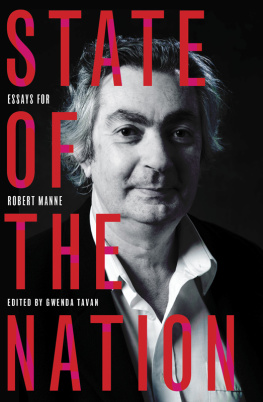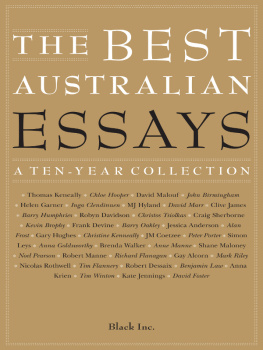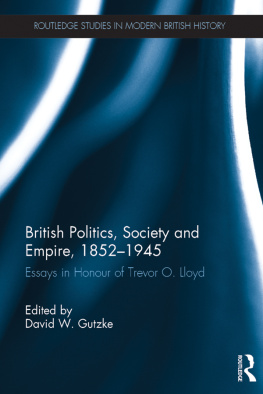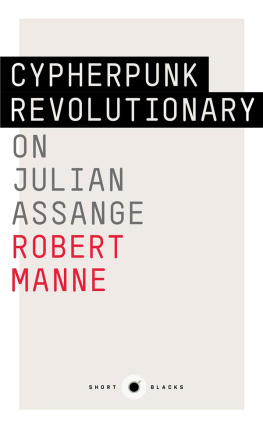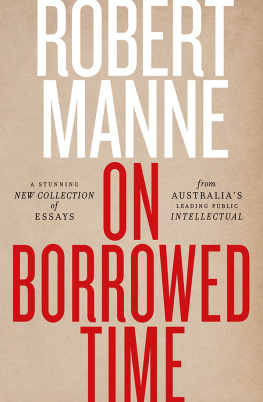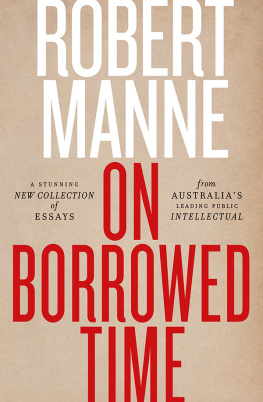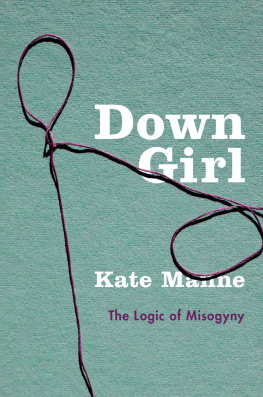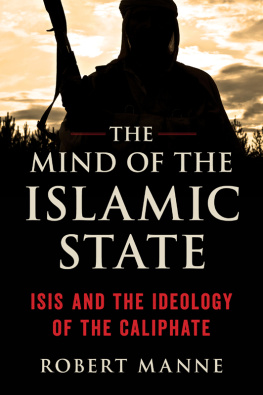INTRODUCTION
Gwenda Tavan
In February 2013 a conference was held at La Trobe University, in Melbournes northern suburbs, to honour the work of one of Australias most eminent public intellectuals, Professor Robert Manne, who retired from his academic post at the end of 2012. The conference brought together many of Australias finest scholars, public intellectuals and social commentators. Some were close friends of Roberts; some had worked alongside or been taught by him; some had crossed paths with him in public forums over the years. They represented a wide variety of disciplinary training and political and ideological beliefs. What they all had in common, and what was the basis for their invitation to the conference, was Roberts belief that, individually, they had made an important contribution to Australian public and intellectual life, and that their work had in some way shaped his own thinking. They, in turn, were keen to celebrate Roberts enormous influence on Australian social, political and intellectual life throughout a career of some forty years.
As Robert explains in his prologue, the title of the conference, Thinking for Yourself, was chosen as an appropriate summary of his opinion about the values that should guide the participation of scholars and intellectuals in the public sphere critical thinking, independence and fearlessness. Participants were invited to present papers on topics of interest to them, but which also related to the broad themes and concerns that have shaped Roberts work over the course of his career: Australian politics, culture and climate change, contemporary social democracy, the public sphere and the university, immigration and multiculturalism, Indigenous affairs and postcolonialism, and the Cold War and the Holocaust. What emerged was an eclectic but highly engaging series of papers, which were the basis for thoughtful consideration and lively discussion over an intensive two-day period.
This volume is the outcome of that conference, containing revised versions of many of the papers as well as some new contributions. It remains faithful to the original themes of the February event, and its brief that papers should embody the values of critical and publicly engaged thinking. Collectively, these essays provide both a snapshot and a powerful critique of Australian political culture in the early twenty-first century. In combination, they can also be read as a compelling overview of the nations intellectual and social history, mapping the changing values, ideas and concerns of successive generations of Australian thinkers and the complicated interpersonal, political and ideological dynamics of Australian intellectual life, from the early years of the Cold War to the present.
Finally, some of the essays provide fascinating glimpses into the personal and professional life of Robert Manne himself, a man who, by his own reckoning, has bucked a few intellectual and political trends and made a few enemies along the way, but whose friends and supporters are plentiful, and whose lifelong commitment to human justice, moral and intellectual integrity and the health of Australian democracy no one has ever doubted.
The conference and this publication would not have been possible without the financial support of La Trobe University, including donations from both the Vice-Chancellors Office and the Faculty of Humanities and Social Sciences. Particular thanks are due to Vice-Chancellor Professor John Dewar, who strongly supported this project and participated in events on the day. Thanks are also due to Morry Schwartz, Chris Feik and Julian Welch at Black Inc. for their support and assistance with the publication. I would like to express my sincere personal thanks to Nicholas Barry, Bree Aherns, Yuvi Pandit and all the postgraduate helpers, whose support made the conference a great success, and to each of the conference participants, who contributed so enthusiastically to discussion during that event. I am grateful too to the authors in this volume for their essays, and for the patience, perserverance and promptness with which they responded to my calls regarding publication.
My final thanks are to Robert. He has been a wonderful colleague, teacher and friend over the years. His intellectual and public contributions and his dedication to the life of the mind have been a powerful source of inspiration for those of us fortunate enough to work, think and teach alongside him. I can think of no better way to honour his fine legacy than by introducing this volume, and by expressing my hope that it might provoke in others the spirit of critical questioning and public discussion that has been so fundamental a part of his own life.
PROLOGUE: BY WAY OF EXPLANATION
Robert Manne
A year or so before I was due to retire after thirty-eight years of teaching and supervision in the Politics Program at La Trobe University, two colleagues, Gwenda Tavan and Nicholas Barry, kindly suggested a conference to mark the occasion. They asked me whom I would like them to invite. Many of those I suggested are the authors of chapters in this volume. They asked what I thought the conference should be called. On the basis of a remark made by Hannah Arendt in the course of an angry exchange over her book Eichmann in Jerusalem , I suggested Thinking for Yourself, a phrase which captures the quality of intellectual engagement with politics I most admire but which also helps explain, and perhaps excuse, my unsteady and sometimes turbulent relations with the political camps of left and right over the past almost fifty years. To understand the topics chosen for this volume which begins with general Australian political themes and then traces my preoccupations in something like reverse chronological order I suggested to the editor that an abbreviated personal political history might prove helpful to the reader.

